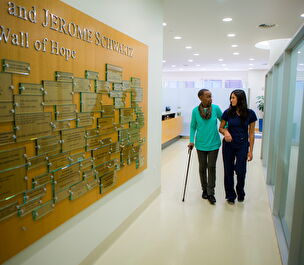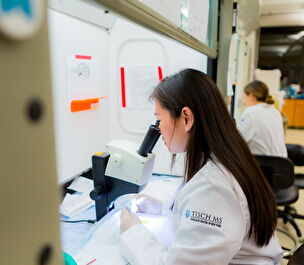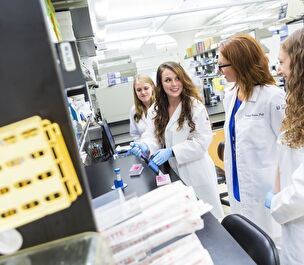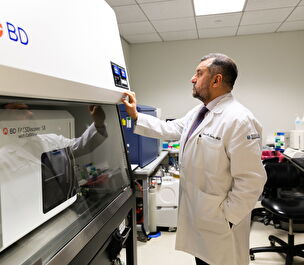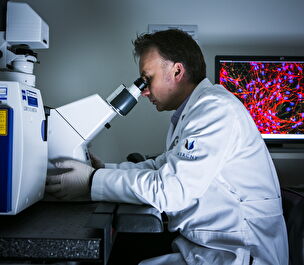
Our Research
Our Research
Ongoing research at the Tisch MSRCNY lab
Multidisciplinary, Collaborative Research
At Tisch MSRCNY, Principal Investigators and their teams blend their specialities to develop innovative, cross-functional studies that target MS. Our 20,000 square foot facility houses an 18-station Central Laboratory and several smaller labs with specialized equipment, including a dedicated stem cell culture lab, flow cytometry and cell sorting facility, a CSF bank, and animal research facility.

Our Projects and Results
Publications

Browse Tisch MSRCNY's extensive library of publications and abstracts from leading journals.
